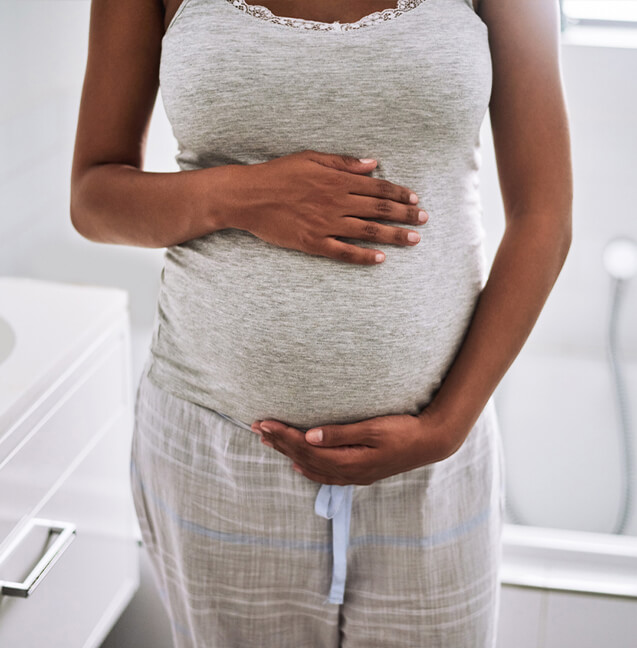Amniocentesis
Amniotic fluid is a clear liquid, initially consisting of water from the mother's body and ultimately replaced with urine from the baby. It is crucial to the development of the baby, consisting of nutrients hormones, and antibodies that fight infection and help protect the baby. Other functions of amniotic fluid include:
- Regulation of the sac’s temperature for the baby
- Protection against bumps and movement by providing a cushion for the fetus
- Prevention of finger and toe webbing by lubricating the body
- Development of healthy muscles, bones, lungs, and digestive systems
Amniocentesis is a diagnostic test involving the insertion of a needle through the abdominal wall, into the liquid of the amniotic sac. Women pregnant with multiples must have sampling done on each amniotic sac to study the babies individually, although it may not be performed if there is abnormal positioning of the fetus or uterus. The test is performed between weeks 15 and 20 to show whether fluid levels are too high or too low in another aim to identify disorders like Down’s syndrome and neural tube defects like spina bifida.

What Conditions Can Amniocentesis Detect?
An amniocentesis test can detect the following disorders:
- Down’s syndrome – Characterized by an extra chromosome (trisomy 21).
- Tay Sachs disease – An inherited disorder caused by the absence of certain enzymes that break down chemicals in the nerve tissue, resulting in the death of neurons.
- Spina bifida – A type of neural tube defect causing the spine and spinal cord to form incorrectly. The three types are spina bifida occulta (mildest, consisting of a small gap in the spine but not necessarily an opening or nerve damage), meningocele (affects the spinal fluid only), and myelomeningocele (most severe, causing a spinal opening in one or more places).
- Lung development – Fetal lung maturity is evaluated if there is a case where premature birth is necessary.
- Rhesus disease – A condition when certain components of the mom and bay’s blood don’t match, resulting in the mother’s antibodies attacking the baby’s blood cells.
Do I Need an Amniocentesis?
This test is available to women between weeks 15 and 20 of pregnancy when other test results or information point to an increased risk of disorders. Conditions that may encourage a mother to seek this type of test include family history of genetic diseases, like Tay Sachs, cystic fibrosis, neural tube defects, advanced maternal age, or an abnormal screening in the first 2 trimesters.
Sometimes, an amniocentesis is performed in the third trimester to look out for infections in the uterus, Rhesus disease, or lung maturity to determine if the fetus’s lungs are developed enough to sustain a healthy birth.
Risks of Amniocentesis?
Amniocentesis is very safe with less than 1% of tests resulting in either miscarriage or preterm labor. Aside from a little cramping, there is a small chance of infection, injury from the needle due to baby movement, or leakage of the amniotic fluid.
If you feel a change in the way your baby is moving or have concerns about vaginal spotting, redness of the injection site, or severe cramps, do not hesitate to contact us at Women’s HealthFirst. You can give us a call at (847) 808-8884 or request your appointment now. We have five locations near Chicago, Illinois, to serve you. Established patients are encouraged to visit the convenient online patient portal to request an appointment, message our team, update their records, and more.

